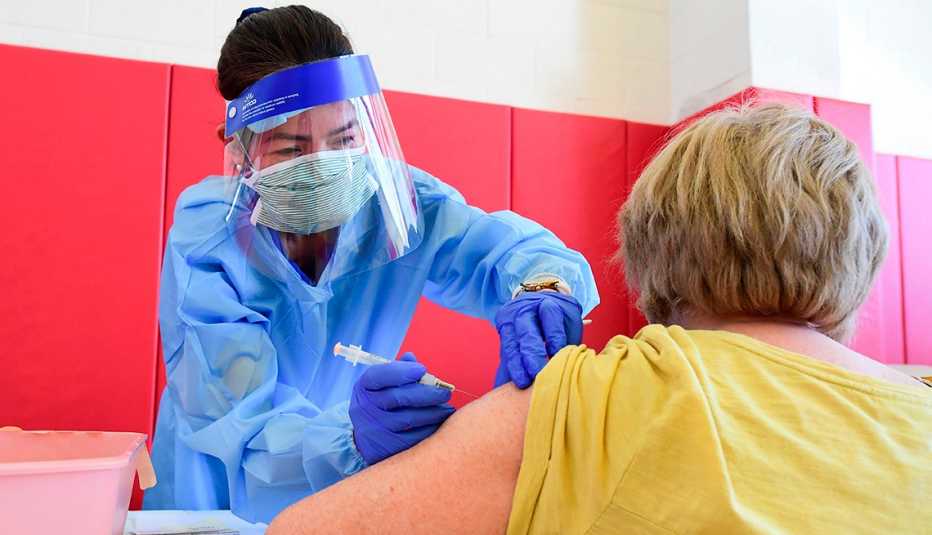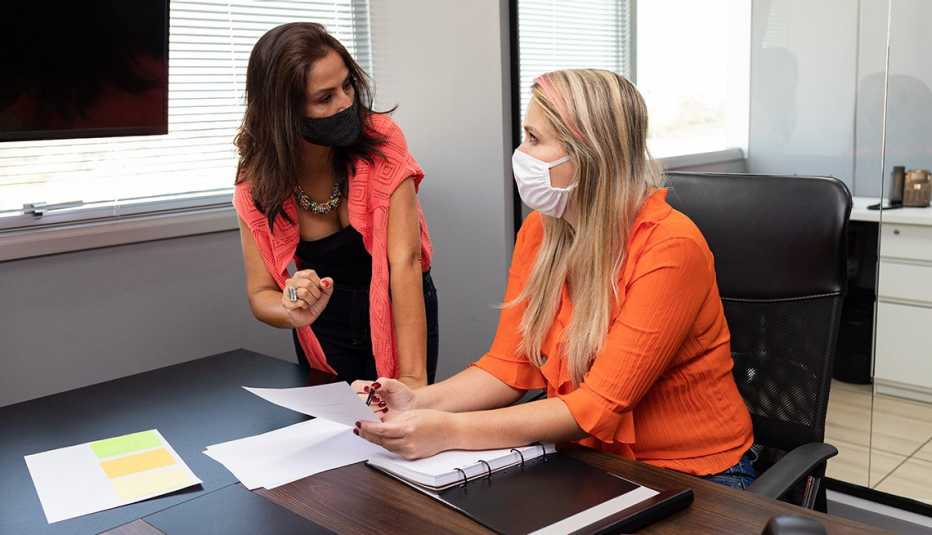Staying Fit
Editor’s note: On Jan. 13, 2022, the U.S. Supreme Court determined that the federal COVID-19 vaccine mandate for large private employers could not proceed, but the court allowed the mandate for workers at health care facilities that receive Medicare and Medicaid funds to take effect. For more information on those rulings, go to this article. The following article, published before those court decisions, offers context on COVID-19 vaccine mandates.


AARP Membership— $12 for your first year when you sign up for Automatic Renewal
Get instant access to members-only products and hundreds of discounts, a free second membership, and a subscription to AARP the Magazine.
People who work for any business with 100 or more employees have until Feb. 9 to get fully vaccinated for COVID-19, according to guidelines issued by the White House. After that date, unvaccinated workers must either take weekly tests showing that they are not infected with the coronavirus or risk being removed from the workplace.
Under a second guideline issued by the Centers for Medicare and Medicaid Services (CMS), all workers at health care facilities that participate in Medicare or Medicaid will also need to be vaccinated by Jan. 27 if they treat or interact with patients. These workers will not have the option of submitting to weekly tests in lieu of vaccination. Legal proceedings in at least 25 states have halted this CMS mandate from taking effect in those places, but in the rest of the nation health care workers who treat patients at facilities that receive CMS funding are expected to be at least partially vaccinated by Jan. 27. AARP has expressed its support for the CMS vaccine mandate.
The U.S. Supreme Court will hear arguments on Jan. 7 to determine the legality of the OSHA and CMS vaccine mandates.
Taken together, the new requirements would apply to more than 100 million workers. It’s a number that could significantly boost the share of American adults who are vaccinated. So far, when employers have enacted vaccine mandates for their workers, only small percentages of those employees have declined to be vaccinated. New York City, for example, required vaccinations for its employees, and by the time the deadline arrived, more than 91 percent had received at least one shot.
“Vaccination requirements are good for the economy,” President Biden said in a statement. “They not only increase vaccination rates but they help send people back to work — as many as 5 million American workers. They make our economy more resilient in the face of COVID and keep our businesses open.”


































































